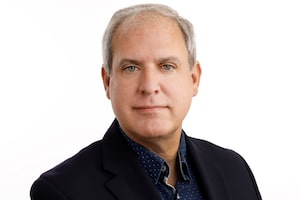The next election is supposed to be three years away, but we’re seeing a lot of predictions of Justin Trudeau’s political demise. But for his Liberal Party, there is no easy way to leave him behind.
Predicting Mr. Trudeau’s next three years seems like a mug’s game when you consider the surprises of his first seven years in office included Donald Trump, pandemic and war in Europe.
But this is a Prime Minister whose last two re-election bids saw him eke out minority governments without winning the popular vote, and who will have been in office for 10 years by the time the next election is due.
Any other party, with any other leader, would already have plans, or plots, to replace him. Yet for the Liberal Party of Canada, the big challenge would be finding a replacement leader who isn’t seen as a pale imitation – a Trudeau Liberal who isn’t Justin Trudeau.
By profile, the obvious contender is Chrystia Freeland, the Deputy Prime Minister and Finance Minister, who now delivers budgets, handles major policy files, steps in for the Prime Minister on key occasions, and often stands next to him for major announcements.
But if the problem with Mr. Trudeau seeking re-election in 2025 is that it’s been too much Trudeau, and Canadians are tired of the way he’s done things, it’s hard to imagine Ms. Freeland being seen as the wind of change.
And for all the weight Ms. Freeland has in Mr. Trudeau’s government – she led NAFTA talks with Mr. Trump’s administration, helped build political peace with Ontario Premier Doug Ford, and is responsible for the pandemic-recovery fiscal plan – she isn’t a political performer like the PM. Few people are.
Mr. Trudeau is a master of the maddening art of the talking point, while Ms. Freeland delivers long lectures. Even now, with his approvals worn lower, no one doubts Mr. Trudeau’s ability to charm a room or deliver a line.
And that’s a conundrum for the Liberals: It’s hard to find a better salesperson for Trudeau Liberalism than Justin Trudeau. And it will be hard to find a Liberal leader who won’t seem like a Trudeau Liberal.
There are some contenders with their own political charm. Innovation Minister François-Philippe Champagne can work a room. Foreign Affairs Minister Mélanie Joly has some charisma, too. But both have been on Mr. Trudeau’s team for seven years.
Defence Minister Anita Anand is newer, and seen by some as a potential leadership aspirant, but by 2025, she will presumably have been a Trudeau cabinet minister for six years. Mark Carney, the former governor of the Bank of Canada and the Bank of England, didn’t join Mr. Trudeau’s government, but it’s not clear if he can handle himself in the cut and thrust world of electoral politics – which is very different from any other stage.
And at this stage, when potential leadership aspirants are still limited to the quiet work of travelling to fundraisers and regional Liberal meetings, and making backroom plans, many of those potential candidates seem to have similar ideas about how to differentiate themselves from Mr. Trudeau – with a harder focus on the economy.
Ms. Freeland, as the Finance Minister, has a platform to do that – but she is very much tied to Mr. Trudeau’s overall governing agenda.
Mr. Champagne, the Minister of Innovation, Science and Industry, is positioning himself as the business Liberal in the cabinet who will talk industrial strategy, economic growth and jobs. Prominent Liberals have suggested to Ms. Anand that she seek out similar turf if she decides to run, although her current job as Defence Minister doesn’t make that particularly easy. Mr. Carney, if he chose to run, would have a different challenge: He would enter the race with hefty economic credentials but would have to convince voters that he is in touch with ordinary Canadians.
That’s a group of potential aspirants who would aim to rebrand the Liberals as a party more focused on economics after the long tenure with a more left-leaning PM. That’s something of a tradition in the Liberal Party that replaced Pierre Trudeau with John Turner, and Jean Chrétien with Paul Martin – with less than stellar electoral results.
With Justin Trudeau seven years into his tenure but three years from an election, the conundrum for the Liberal Party isn’t whether Mr. Trudeau will run again. It’s whether he can be replaced with someone voters will think is different.
For subscribers: Get exclusive political news and analysis by signing up for the Politics Briefing.
 Campbell Clark
Campbell Clark